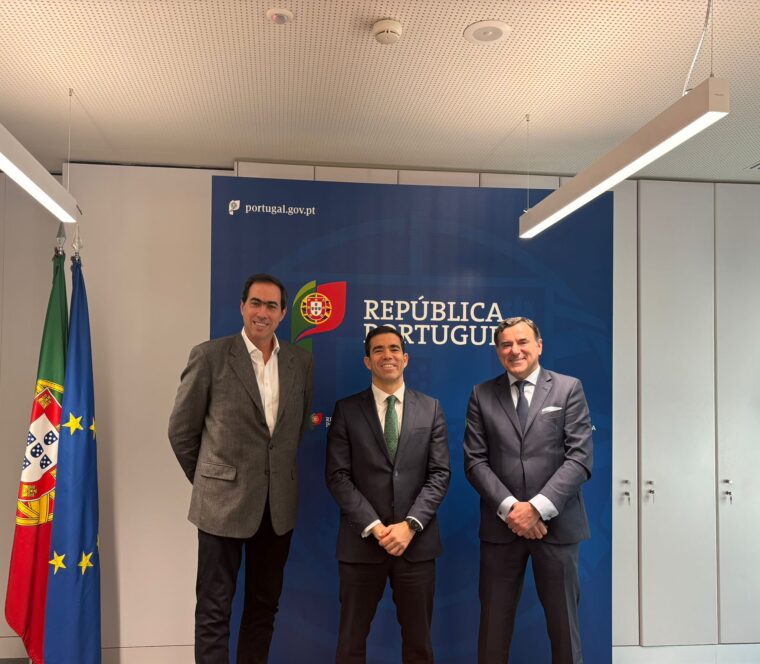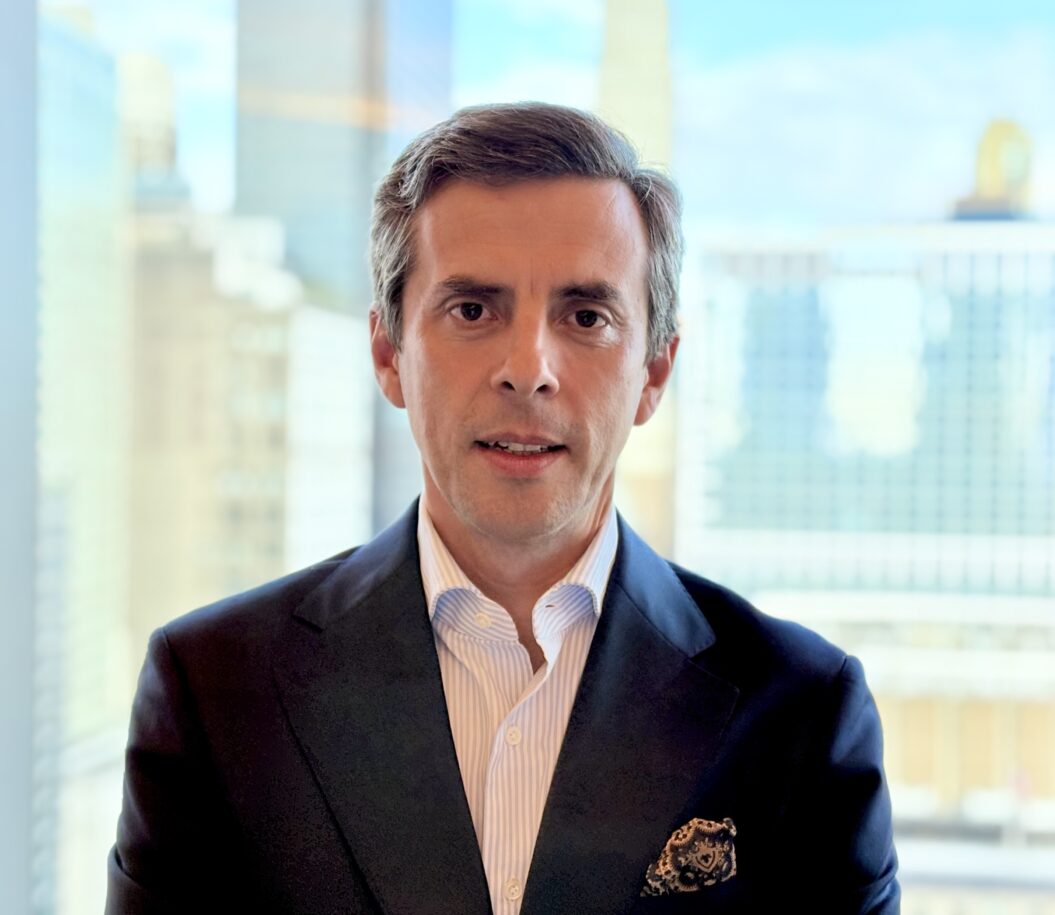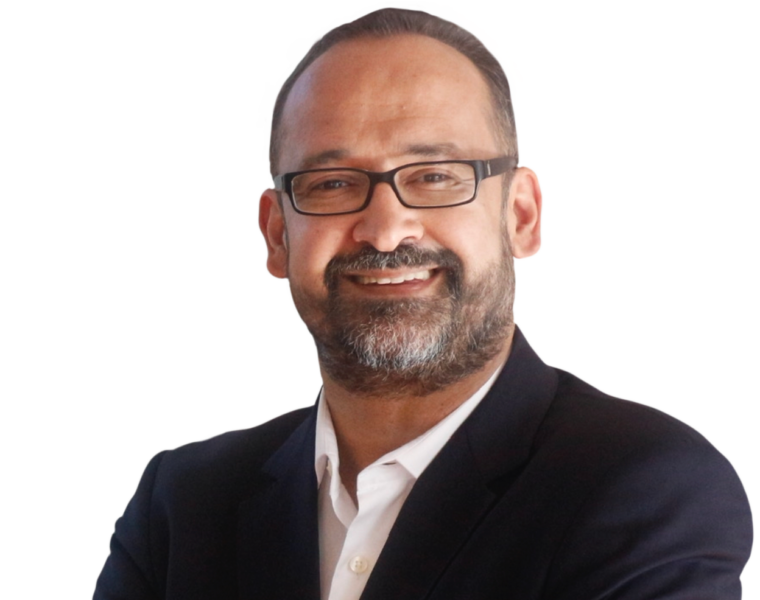As part of the partnership between the Portuguese Diaspora Council and Jornal de Negócios, Miguel Duarte, Partner at EY-Parthenon, and Counselor of the USA Regional Hub, was interviewed by Jornal de Negócios. In the interview, Miguel Duarte discussed his professional journey and identified competitive opportunities for Portugal, its economy, companies, and entrepreneurs in general.
1 – WHAT LED YOU TO LEAVE PORTUGAL?
I always believed that my personal and professional development would depend on working in larger markets (in both volume and value), where you compete with the best talent. Early in my career, I worked in the Iberian market and became familiar with corporate Portugal and Spain; but the fascination with the New World was incomparable. After the 2008 crisis, there was a renewed focus on emerging countries (the BRIC mania), and Brazil was at the top of the list for anyone Portuguese. When Europe faced the sovereign debt crisis in 2010, the consulting firm I worked for at the time — Strategos, a company specialized in strategic innovation — challenged me to go to Brazil and start the business there. It was the perfect opportunity at the perfect time. From my first experiences, I immediately realized that in the New World it doesn’t matter where you come from, but rather the size of your ambition and the value you can add. That cultural trait sharpened my drive to leave Europe. Fifteen years have passed, and I haven’t left the New World. I lived in Brazil for 11 years, and during that time I worked throughout Latin America. In 2021, I moved to New York to dedicate myself to the U.S. market.
2 – WHAT ADVANTAGES OR DISADVANTAGES HAS THE FACT THAT YOU ARE PORTUGUESE BROUGHT YOU?
Overall, being Portuguese has the enormous advantage of having no disadvantages. We are not stereotyped as a threat or associated with negative connotations; instead, we are seen as neutral on the international stage, friendly, and hard-working. That widespread perception is a positive one. I think the most important trait—one that creates meaningful advantages—is our ability to integrate culturally in almost any context. I believe that being few in number forces us to develop this instinct to ‘fit in.’ On the other hand, over the last 10 years Portugal has become an icon of friendliness, hospitality, and a top travel destination. This creates a very positive aura in any social setting—people want to know, to ask, to talk about it. Being Portuguese has become a point of connection.
3- WHAT OBSTACLES DID YOU HAVE TO OVERCOME AND HOW DID YOU DO IT?
The biggest obstacle I had to overcome was the mindset I carried with me. You win the game outside Portugal only if you free yourself from the constraints imposed on you — we are the size of our dreams, as Pessoa said. The ‘big dream’ is not in our DNA today (though it once was), and it’s essential to understand that the limits placed on us by our small and conservative social and educational system must be radically challenged. It takes a few years to change the perception we have of ourselves and of what we are capable of. Brazil expanded my vision and my dreams a hundredfold, and the U.S. a thousandfold.
4 – WHAT DO YOU MOST ADMIRE ABOUT THE COUNTRY YOU ARE CURRENTLY IN?
In the U.S., I admire the widespread capacity to undertake and innovate. Growing and building are deeply rooted values, not just options for small groups. The virtuous cycle between entrepreneurship and investment makes the American economy unbeatable. Capital allocation is extremely efficient and drives continuous growth. It’s remarkable that the U.S. capital market represents 60% of the global market, even in a world with so many centers of wealth, and that the Magnificent 7 account for 30 to 35% of it. On the other hand, if we look at these companies and their founders, we see that this is not a world of heirs and crony capitalists, but of individuals (many of them immigrants) who worked hard to earn their place in society and in the economy.
5 – WHAT DO YOU ADMIRE MOST ABOUT THE COMPANY / ORGANIZATION YOU ARE IN?
I’ve been a Partner at EY since 2014. I started in Brazil, held several roles across Latin America, and since 2021 I’ve been in New York. The reason I’ve been with the firm for 11 years is the constant renewal of challenges and the entrepreneurial spirit. I can’t remember ever going more than two years without a new challenge, a new agenda, or a new strategic topic to support our growth trajectory. Even though we are a global organization with 51 billion dollars in revenue, I still feel that EY is a company in permanent construction and constant innovation.
6 – WHAT RECOMMENDATIONS DO YOU HAVE FOR PORTUGAL, ITS ENTREPRENEURS AND MANAGERS?
I’ve had the privilege of working as a strategy consultant with some of the world’s largest companies across multiple sectors and on four continents. Based on my experience and what I know of the Portuguese business landscape, my recommendations would focus on four vectors:
Ambition to lead niches in the U.S. market – Winning in the American market, where it is possible to bet on growth and differentiation, and to elevate the Portugal brand and the brands of these companies, should be a priority. The world’s largest economy has room for players that bring high quality to niche segments of both volume and value (unlike what we see in emerging markets). Moreover, the U.S. benefits from a demographic bonus surpassed only by India over the coming decades, combined with an unmatched rule of law and access to ambitious investors seeking high–value-added opportunities. Overall, for decades I’ve seen many Portuguese entrepreneurs pursue markets with supply scarcity and linguistic proximity, rather than aiming to win large, highly competitive markets with stable growth and strong rule of law. Playing in more competitive leagues will raise the bar for companies and create the right pressure for innovation.
AI adoption as a competitive leapfrog – Moving early on AI implementation as an opportunity to eliminate disadvantages related to cost or market access should be at the top of the agenda. AI is not a tool; it is a utility that will radically transform value chains. It is an opportunity available to everyone, everywhere, at similar costs. The moment is now. Execution capability at this inflection point will determine the winners.
Opening capital to ambitious investors and employees – Many smaller companies resist bringing in new partners or sharing equity with employees. This culture must change: expansion and “big dreaming” require ambitious investors and a workforce that is aggressively committed to the value of equity. This will transform both company culture and performance in Portugal.
Open Governance – Any company, regardless of size, needs to build structures such as global Advisory Boards, internationally diverse Boards, and Innovation Committees to enable big thinking and big execution. Entrepreneurs must be challenged by people from outside, with new ideas, new expansion opportunities, and knowledge of target markets. Continuing to appoint Board members from the same Portuguese establishment will not win this game.
7 – IN WHICH SECTORS OF THE COUNTRY WHERE YOU LIVE CAN PORTUGUESE COMPANIES FIND CUSTOMERS?
I believe there is an opportunity to occupy high-value market niches within the automotive and aerospace supply chains. Portugal has built an automotive cluster and capabilities that will certainly open doors in the U.S. In the building materials sector, there may also be relevant opportunities to introduce high-quality materials, given that real estate and infrastructure investments will remain at record levels. It could also make sense to lead certain segments of the high-quality textile value chain, where Portugal has much to offer in the premium segment, and where products of that standard are highly valued in the U.S. (as seen with the impact of Made in Italy).
8 – IN WHICH SECTORS IN PORTUGAL COULD COMPANIES IN THE COUNTRY WHERE YOU ARE WANT TO INVEST?
From the perspective of American investors, entering manufacturing and equipment companies that demonstrate distinctive features, innovation, and the ability to capture high-value market niches would be very attractive. Many of these companies are small in size but possess highly distinctive capabilities and quality — we need to democratize access to foreign capital for these businesses. For American investors, this would certainly represent an opportunity given their scalability.
9 – WHAT IS THE COMPETITIVE ADVANTAGE OF THE COUNTRY YOU ARE IN THAT COULD BE REPLICATED IN PORTUGAL?
The main advantage of the U.S. lies in its Capital Markets and the virtuous cycle of entrepreneurship and investment that I mentioned earlier. This advantage is not replicable. However, reorganizing governance and preparing companies to receive the right kind of capital can be replicated in Portugal. There is much to teach the segments of companies that can make this move, but it will be necessary to recognize that designing governance and capital structures is very different from the current model if global success is to be achieved.
10 – ARE YOU THINKING OF RETURNING TO PORTUGAL? WHY?
We are thinking of returning, but without a clear timeline. Today, in addition to the professional opportunities constantly evolving, we are very happy to give our daughters the chance to grow up and live in Manhattan, where everything happens and the likelihood of having fantastic future opportunities is dramatically higher.
We believe that Portugal offers an excellent quality of life, and we enjoy everything it has to offer. Our family and childhood friends are there, and it will be a pleasure to return at some point to also contribute to the evolution of the Portuguese business landscape
Disclamer: The opinions expressed in this article are solely those of the author and do not necessarily reflect the opinions or perspectives of Ernst & Young LLP or other members of the global EY organization







